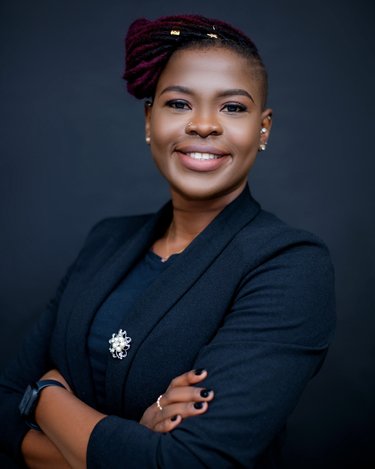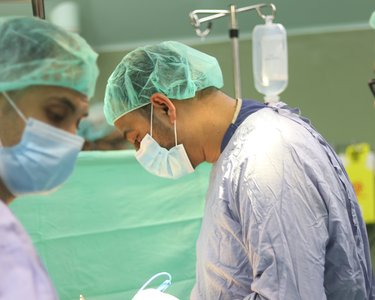This is the second blog written by Dr Marcella Ryan-Coker about her experience as a Humanitarian Surgery Fellow at the Royal College of Surgeons of England, supported by UKHIH. Her first blog, Beyond the Operating Table, can be found here.
Humanitarian surgery is about providing emergency surgical care in conflict and post-conflict zones, areas hit by sudden disasters, and places where local health systems are overwhelmed. It's not just about crisis response; it's about ensuring surgical care is accessible, ethical, and sustainable, even in the toughest settings. But with multiple intersecting global health crises, how do we sustain these efforts?
Humanitarian surgeons are more than just doctors. We witness suffering, injustice, and the collapse of health systems under conflict and crisis. But we also witness courage that defies war, destruction, and even death.
In 2024, I experienced the loss of a colleague who, along with myself, had completed a UKHIH-funded Humanitarian Surgery Innovation Fellowship at the Royal College of Surgeons of England (RCS England). Dr Ahmed Almaqadma was a plastic surgeon working at Al-Shifa Hospital in Gaza, who was killed during Israeli Defence Forces action on the hospital. Ahmed was one of seven such fellows and although we knew that he was in danger, we were not prepared for his loss. Ahmed embodied the true humanitarian spirit, opposing injustice by the fundamental act of saving lives. He put his life on the line in Gaza to offer care even when his hospital was targeted, and healthcare workers became victims of conflict.
His death was an injustice. It reinforced what we already knew - humanitarian surgery is a fight for the right to care for every patient caught in crises. We owe it to Ahmed, our patients, and the future of humanitarian surgery to keep pushing forward, even when it feels like the world is turning its back.
Progress has been made in humanitarian and global surgery in the last decade. However, the realities remain complex. Surgical care in emergency situations presents many ethical (such as ethical voluntourism, improvisation, power dynamics, cultural beliefs and autonomy etc.) and practical difficulties including scarce surgical resources, disrupted supply chains, and irregular electricity and water supplies.
Beyond these practical challenges, the human toll is far more harrowing. Surgeons, nurses, and healthcare workers risk their lives - many injured or killed – while serving in crises zones where healthcare facilities and their staff are deliberately targeted. Ahmed was one of them. His death is both a call to action and a stark reminder that silence in the face of such violence is unacceptable. It warns us that without immediate action, more lives will be lost - not because surgery was impossible, but because the world chooses to look away. While emergency responses save lives in conflict settings, they are not a lasting solution. And they should never be at the cost of the lives of healthcare workers.
Surgery can no longer be an afterthought in global health. The long-term solution lies in building local surgical capacity so healthcare systems can function independently, even in crisis. A recent call to action, Life on the Line: Reshaping Humanitarian Surgery, emphasises this critical shift: surgical care must be recognised as humanitarian aid, and humanitarian surgery must be embedded within local and national healthcare systems.
For me, my Humanitarian Surgery Initiative (HSI) fellowship has reinforced how surgery can be used as a tool for justice, resiliency, and hope. It has also made me realise the price of this work - the risks, the losses, and the personal sacrifices. But if I’m certain of one thing, it is this - humanitarian surgery is not just about what we do in the operating room — it is about the lives we fight for, the systems we build, and the people we encounter along the way. To every surgeon, nurse, and healthcare worker in conflict zones - your work matters. Your lives matter. And the world is better because of you.
For Ahmed. For our patients. And for the future of humanitarian surgery.
Author Profile
Marcella Ryan-Coker is a surgical trainee in orthopaedics and trauma at the University of Nairobi, Kenya and a former Humanitarian Surgery Fellow at Royal College of Surgeons of England, supported by UKHIH. Her work bridges clinical care and health systems research, with a focus on surgical equity, trauma system development, and capacity-building in sub-Saharan Africa.

